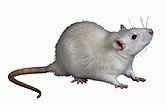
FRIDAY, Sept. 20 (HealthDay News) — A newly identified gene that plays an important role in erasing old memories could point to new ways to treat post-traumatic stress disorder (PTSD), researchers say.
The role of the Tet1 gene in “memory extinction” was uncovered in experiments with mice. The gene appears to control a small group of other genes necessary for getting rid of old memories.
Boosting the activity of the Tet1 gene may help people with PTSD by making it easier for them replace memories of traumatic events with more pleasant memories, said study senior author Li-Huei Tsai, director of the Institute for Learning and Memory at the Massachusetts Institute of Technology.
“If there is a way to significantly boost the expression of these genes, then extinction learning is going to be much more active,” Tsai, a professor of neuroscience, said in an MIT news release.
Scientists note, however, that research with animals often fails to provide similar results in humans.
The new study was published in the Sept. 18 issue of the journal Neuron.
The researchers worked with mice that had an intact Tet1 gene and mice without Tet1. Both groups of mice were conditioned to fear a particular cage where they received a mild shock. Once this memory was formed, the mice were put in the cage again but did not receive a shock.
Eventually, the mice with the Tet1 gene lost their fear of the cage as new memories replaced the old ones, but the mice without Tet1 remained fearful.
“What happens during memory extinction is not erasure of the original memory,” Tsai said. “The old trace of memory is telling the mice that this place is dangerous. But the new memory informs the mice that this place is actually safe. There are two choices of memory that are competing with each other.”
Further experiments confirmed the important role that Tet1 plays in memory extinction, according to the news release. The team is now trying to find ways to boost Tet1 levels and studying whether such an increase could enhance memory extinction.
More information
The U.S. National Institute of Mental Health has more about post-traumatic stress disorder.
Copyright © 2026 HealthDay. All rights reserved.

